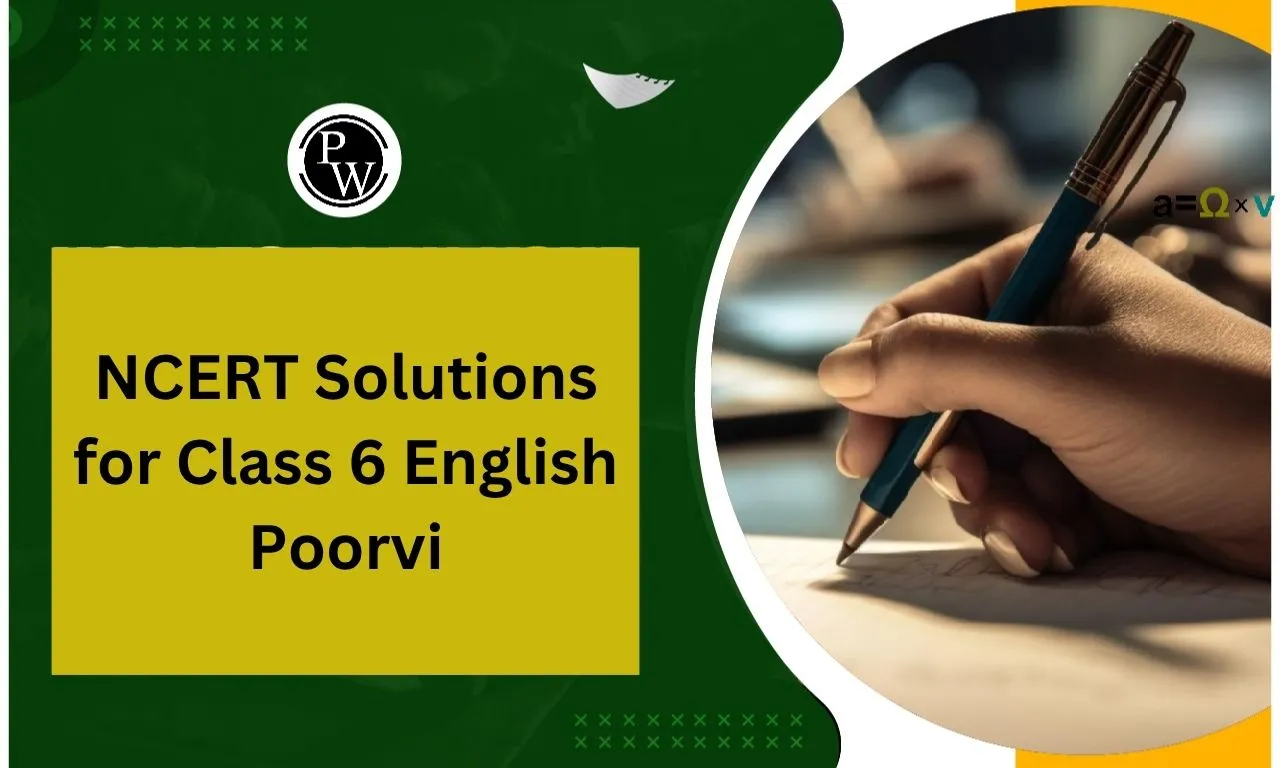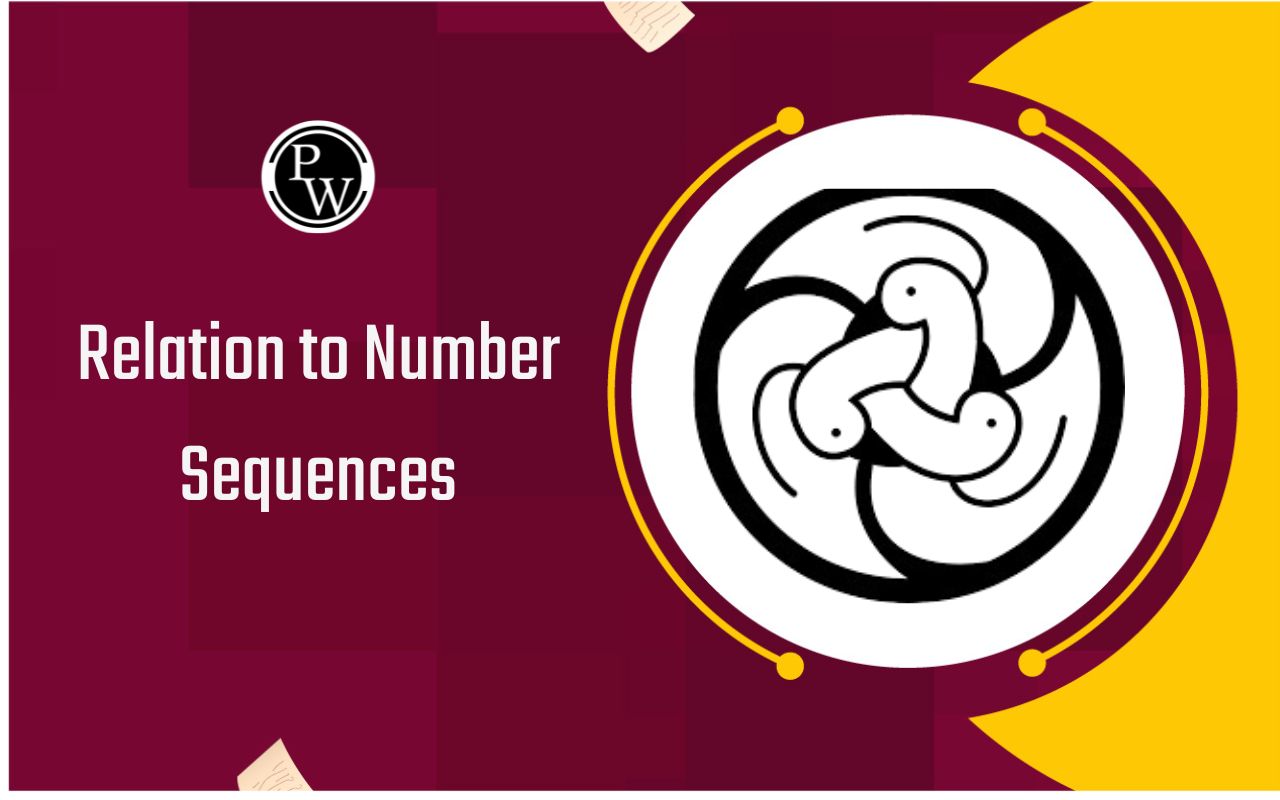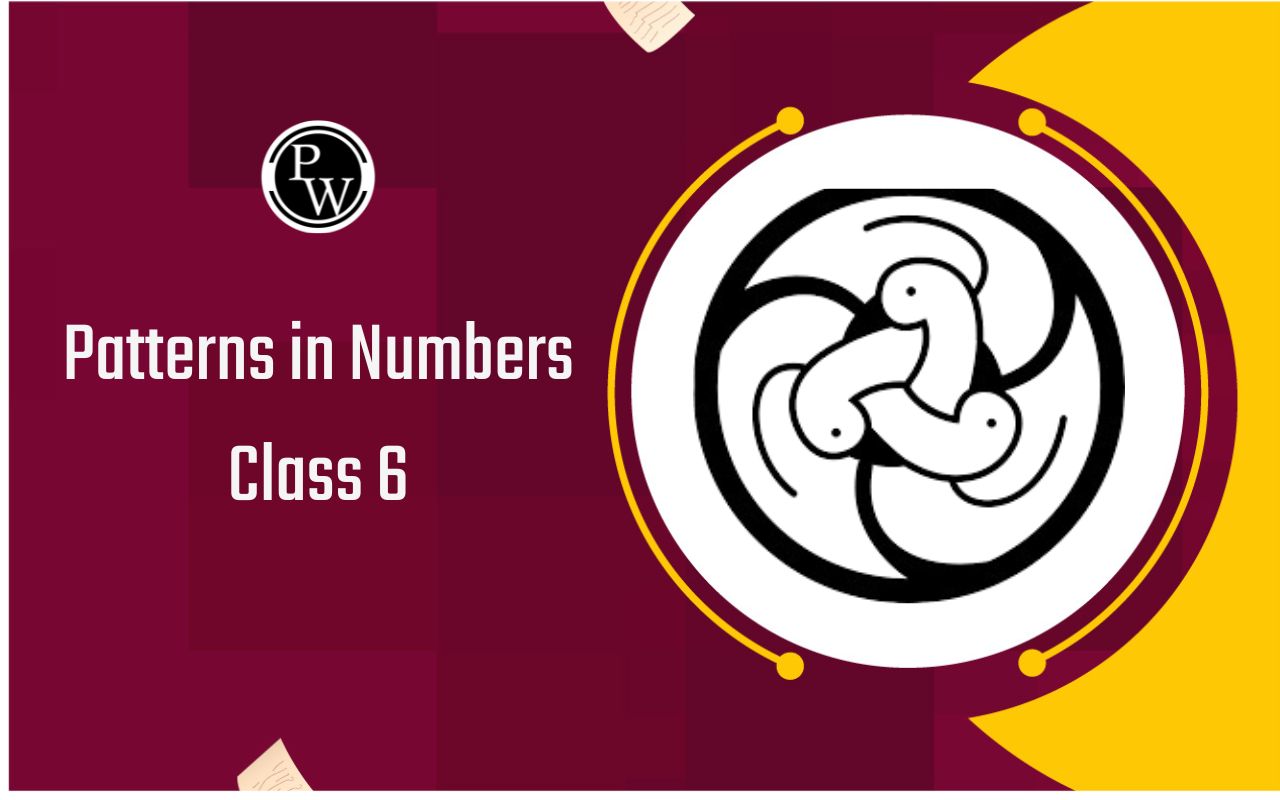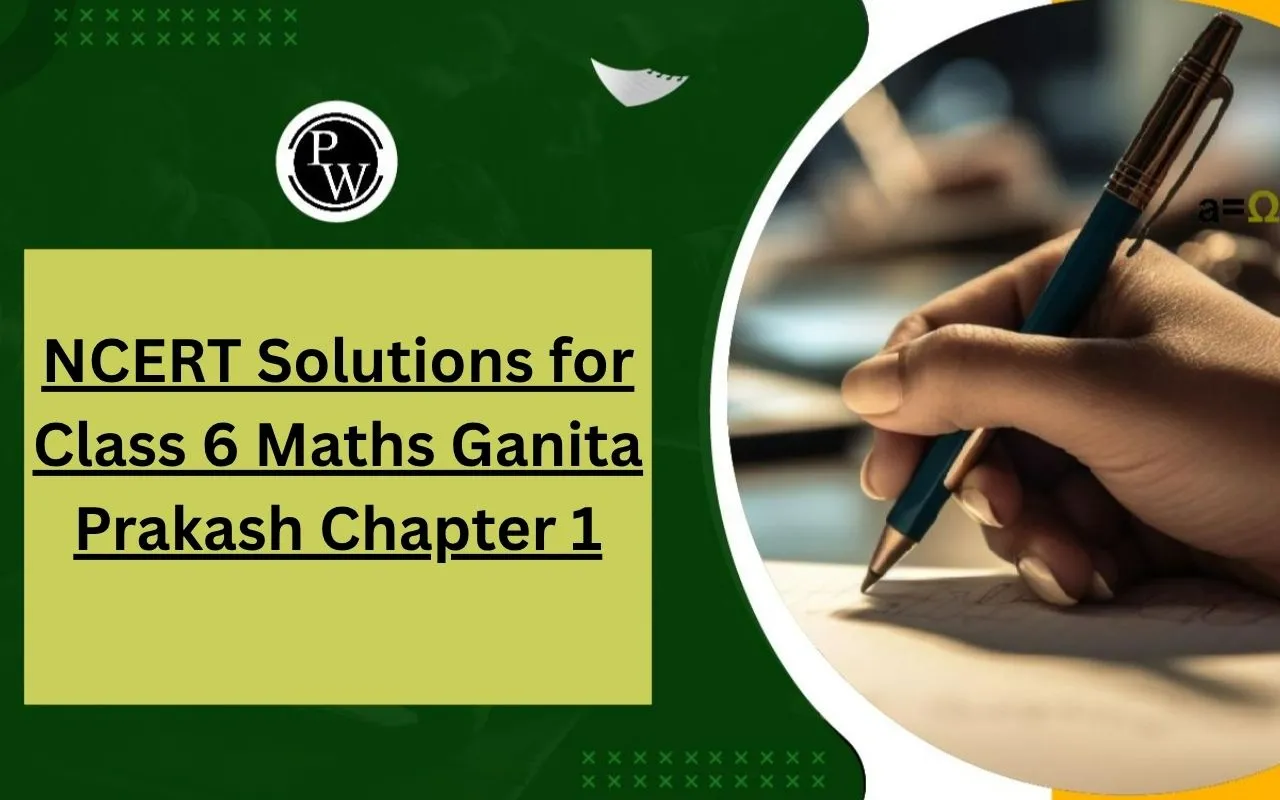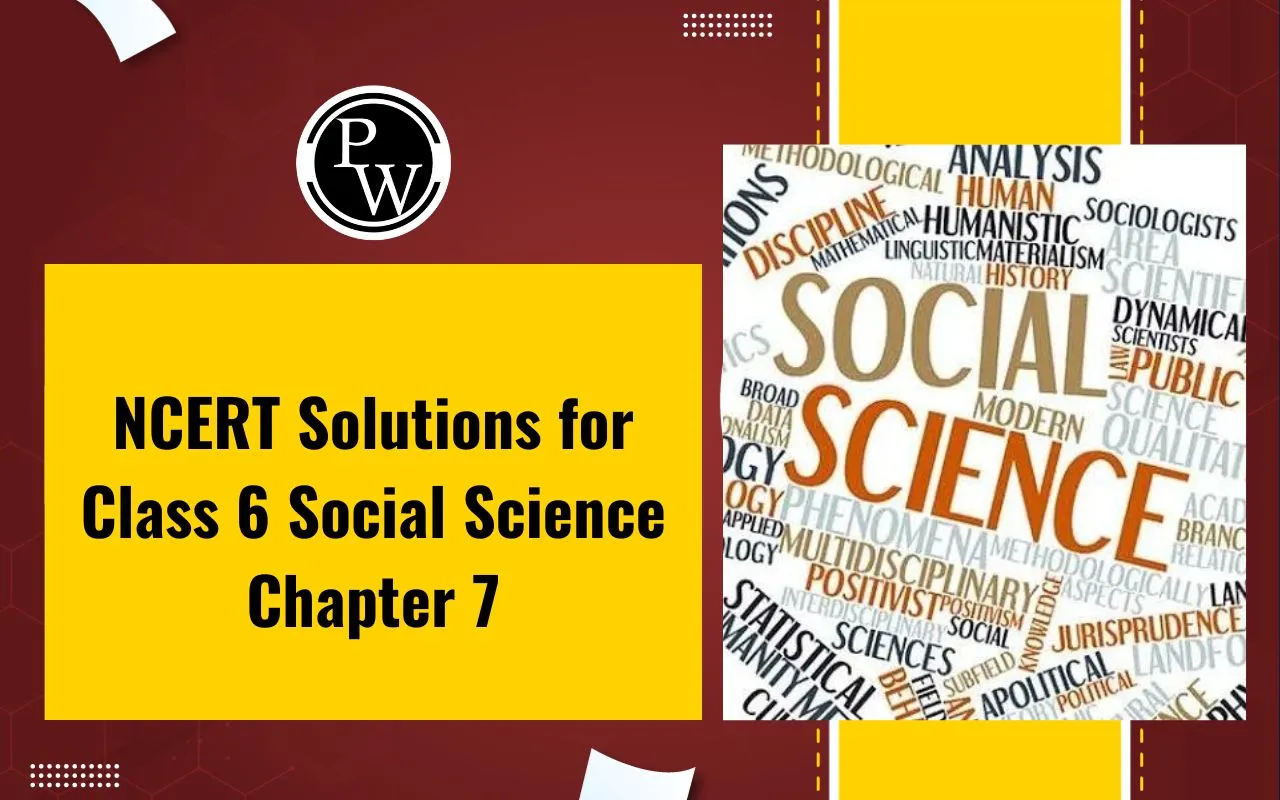
NCERT Solutions for Class 6 English Poorvi Unit 1 Chapter 3: This chapter, Rama to the Rescue, is part of the new NCERT Class 6 English Poorvi textbook and aligns with the latest CBSE exam pattern and CBSE syllabus. It narrates the heroic tale of Rama saving Sita with courage and wisdom.
The NCERT solutions for class 6 english help students understand key concepts, improve vocabulary, and enhance comprehension skills. Each question is solved in a simple, exam-focused manner to support better preparation. These solutions also strengthen writing and grammar skills, making them essential for scoring well in school exams and understanding the chapter deeply.
NCERT Solutions for Class 6 English Poorvi Unit 1 Chapter 3 Introduction
"Rama to the Rescue" is a folk tale from Tamil Nadu about a clever couple who outsmart a thief. When they realize a thief has entered their home at night, they pretend to discuss naming their future child "Rama," calling out the name loudly in different tones.
This is a trick to alert the village kotwal, also named Rama. Hearing his name, the kotwal rushes in and catches the thief. The story highlights the couple’s intelligence and quick thinking, showing that wit and presence of mind can help overcome danger.
Class 6 English Poorvi Unit 1 Chapter 3 Question Answers Rama to the Rescue
Page 20 – Let us do these activities before we read
I. Identify the following people. How do they help us when we are in trouble?
Students' own answers. Example:
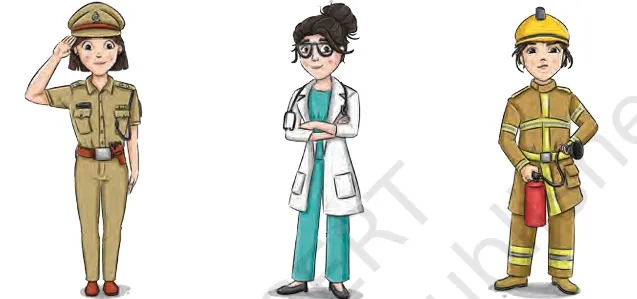
-
Doctor – Treats us when we are ill.
-
Police – Protects us and catches criminals.
-
Firefighter – Rescues people from fire.
II. Choose the correct option to complete the sentence.
The word ‘rescue’ means to –
→ 2. save someone
III. Tick the phrases describing those who need to be rescued.
✔ A man stuck in a building on fire.
✘ A woman buying vegetables in the market.
✔ A dog who has hurt its leg.
✔ A tree being cut down in a forest.
IV. What do you call a policeman in your language?
Student’s own language term, e.g., “S.I.” or “Policewala”
V. Imagine you are alone at home and face a problem.
-
I will try to solve the problem myself.
-
(iii) Think quickly about ways to solve the problem.
Page 22 – Let us discuss
I. Circle the odd one.
-
children (odd one out)
-
Kotwal (odd one out)
Page 23 – Let us discuss
I. Write whether True or False.
-
The man tells his plan to his wife. – True
-
The thief wants to know where they kept their jewels. – True
Page 24 – Let us discuss
-
Along with your classmates, call out the name ‘Rama’– softly, loudly and very loudly.
(Activity-based, to be done in class) -
What do you think will happen next in the story?
Rama will come to the house and catch the thief.
Page 25 – Match the words
I. Match Column A with Column B.
-
wonder – (vi) a feeling of surprise
-
yard – (iii) an area outside a building
-
chatter – (iv) talk for a long time about unimportant things
-
instead – (i) in place of someone or something
-
closely – (ii) carefully
-
perhaps – (v) maybe
Page 26 – Story Diagram
Fill the boxes:
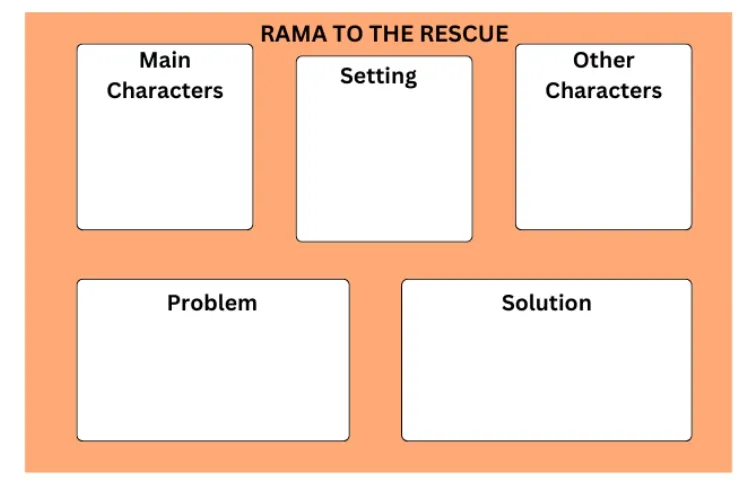
Answer:
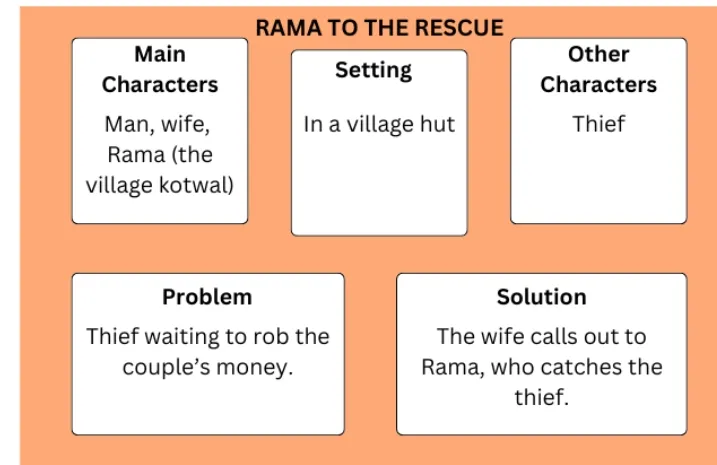
Page 26 – Let us think and reflect
1. (i) What makes the man say the first line?
He hears his wife making a sound and notices her looking around.
(ii) What does ‘Ssssh’ mean here?
→ D. be silent
(iii) How can you tell that the wife was listening carefully?
She asked the man to be quiet and listen, showing she was paying attention to sounds.
Page 27 – Let us think and reflect
2. (i) The villagers caught the thief and took him to the ____.
→ Kotwal
(ii) What do the words “Oh, Oh!” show here?
→ A. surprise
(iii) How can you tell the kotwal was good at his job?
He responded quickly and caught the thief with the help of the villagers.
II. Why were the man and his wife not able to fall asleep?
They heard strange noises outside and suspected a thief was trying to break in.
III. What did the thief wish would happen? Did it happen?
He wished the couple would go to sleep. No, it didn’t happen as they stayed alert and called Rama.
IV. How did the man and his wife get help from the kotwal?
They cleverly spoke loudly to trick the thief and called out Rama’s name, who then came and caught the thief.
V. Do you think cleverness can help us solve our problems? Why?
Yes, clever thinking helps us find smart solutions without panic, just like the man and his wife tricked the thief.
Page 27 – Let us learn
I. Write the full words with the missing letter (Contractions):
-
I’m feeling so sleepy. → I am
-
It’s a thief. → It is
-
They’re awake. → They are
Page 28 – Expand the contractions
| S. No. | Contracted Words | Expanded Form | Example Sentence |
|---|---|---|---|
| 1 | What’s | What is | What’s your name? |
| 2 | I’ll | I will | I’ll go with you. |
| 3 | I’d | I would / I had | I’d like to help you. |
| 4 | We’ll | We will | We’ll reach soon. |
| 5 | That’s | That is | That’s my friend. |
| 6 | We’re | We are | We’re ready. |
| 7 | Don’t | Do not | Don’t be late. |
| 8 | You’ll | You will | You’ll love this. |
| 9 | Must’ve | Must have | He must’ve forgotten. |
III. Choose the correct option:
The sentences 1–5 refer to actions that
→ are going on at the time of speaking.
Page 29 – Present Progressive Tense
IV. Fill in the blanks:
-
I am studying in Grade 6.
-
My friend is reading a story book.
-
We are playing a board game.
-
I am learning a new language.
-
The teachers are sitting in the staff room.
-
My mother is cooking food in the kitchen.
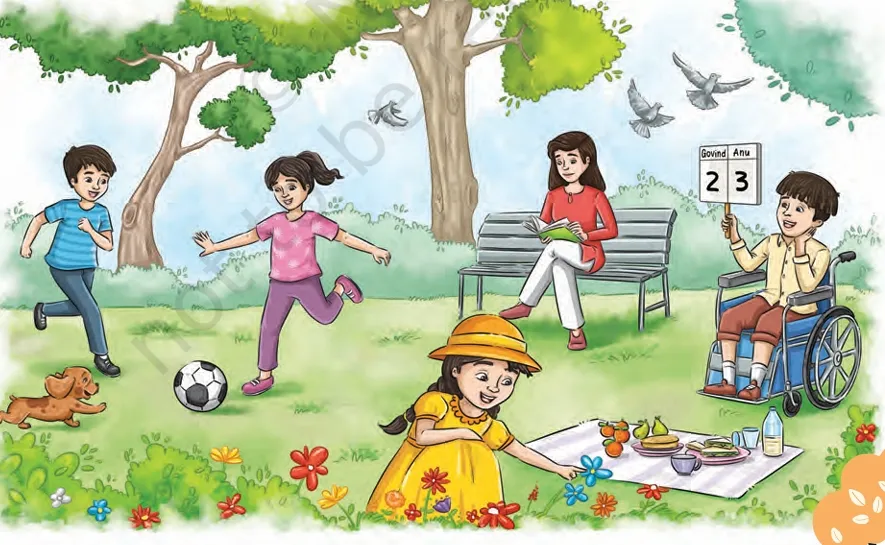
V. Fill in the blanks using verbs from the picture:
(Assuming a standard scene; teacher may modify based on illustration)
-
The boy is running.
-
The girl is skipping.
-
The children are playing football.
-
The teacher is watching them.
-
The dog is barking.
Page 30 – Adverbs
VI. Complete the table:
| S. No. | Sentence | Question Word | Answer |
|---|---|---|---|
| (i) | I’d better listen closely. | How does he listen? | closely |
| (ii) | I’ll call out softly. | How does she call out? | softly |
| (iii) | I’ll call out very loudly. | How does she call out? | very loudly |
VII. Fill in the blanks with suitable adverbs (choose from box):
Box: warmly, gracefully, smoothly, beautifully, funnily, quickly, hurriedly
-
Govind and Anu quickly play football.
-
Pema beautifully arranges flowers.
-
Anil hurriedly writes the score card.
-
The mother warmly reads a book.
-
The dog quickly tries to catch the ball.
-
The birds gracefully fly in the sky.
Page 31 – More Adverbs
VIII. Fill in the blanks (story-based):
Box: peacefully, slowly, tirelessly, honestly, brightly, sweetly, angrily
-
Once upon a time in a small forest, animals lived peacefully.
-
The wise old tortoise moved slowly.
-
The ants worked tirelessly.
-
The lion ruled honestly.
-
The birds sang sweetly.
IX. Choose the correct options:
(i) Sentence 1 expresses a feeling of → tiredness
(ii) Sentence 2 expresses a feeling of → relief
(iii) Sentences 3 and 4 ask → questions
Page 32 – Punctuation
X. Punctuate and identify sentence type:
-
Wow! What an intelligent man he is! → Exclamatory
-
Oh! How big the hole is! → Exclamatory
-
Do you like to read comic books? → Interrogative
-
What is your favourite story? → Interrogative
Page 32 – Listening Activity
(To be filled during listening; sample answers based on context)
-
Robbery has been happening in that area.
-
Tell the police.
-
Safety is the main thing.
-
Call helpline when needed.
Page 33 – Speaking Activity
II. Reasons for keeping house and self safe:
(i), (ii), (iii), (v), (vii) – are all valid. Example sentences:
-
I think it’s important because we must protect our family.
-
I feel it’s necessary as it keeps us safe from danger.
-
The reason we need to look at safety is to avoid accidents.
III. Three ideas on how to keep safe:
-
I think they should lock all doors and windows.
-
They must install a security alarm.
-
How about keeping emergency numbers handy?
Page 34 – Writing
Imagine and write what happened:
(Sample paragraph)
My wife and I were about to go to sleep last night when we heard someone trying to break in. We stayed quiet and listened carefully. Soon, we realized a thief was inside. To protect ourselves, we pretended to talk loudly about calling Rama, the kotwal. Rama heard us and came running. He saw the thief and caught him with the help of the villagers. It all happened in our house late at night. We were scared, but our clever plan helped us stay safe.
Page 34 – Explore
1. Who will you call if...
-
Fire → Fire department
-
Someone getting hurt → Doctor / Emergency services
-
Wounded animal → Animal rescue / Vet
-
Someone suspicious → Police
-
Lost child → Police or help centre
-
You get lost → Call parents or police
2. Maze activity (Page 35)
→ Trace the correct path from the kotwal to the thief (to be done on worksheet)
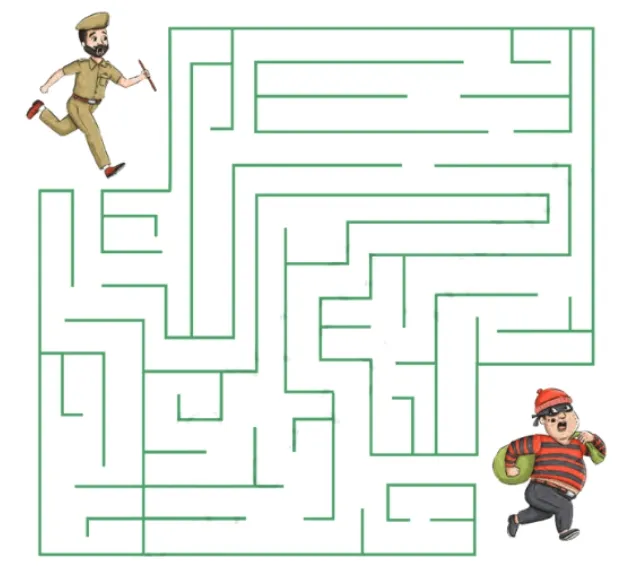
Answer:
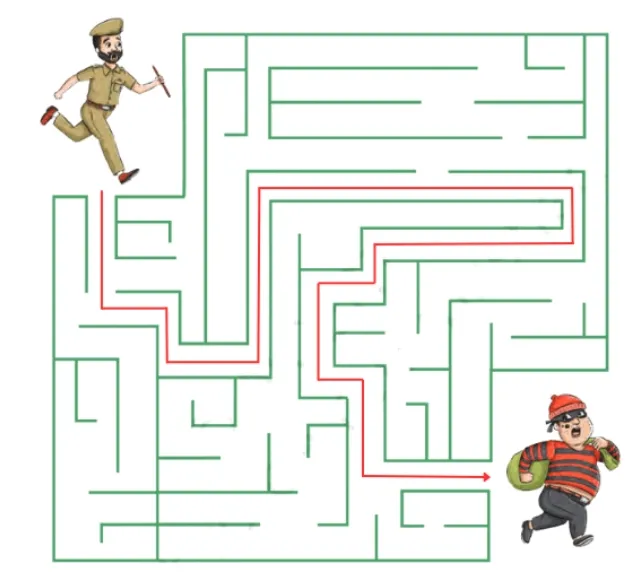
NCERT Solutions for Class 6 English Poorvi Unit 1 Chapter 3 PDF
This PDF provides complete NCERT solutions for Chapter 3 Rama to the Rescue from the Class 6 English Poorvi textbook. It includes answers to all textbook exercises, grammar sections, and writing tasks, based on the latest CBSE syllabus and exam pattern. These solutions help strengthen comprehension, vocabulary, and language skills.
NCERT Solutions for Class 6 English Poorvi Unit 1 Chapter 3
Study without using the internet
Preparation Tips for NCERT Solutions for Class 6 English Poorvi Unit 1 Chapter 3
Here are some effective preparation tips for NCERT Solutions for Class 6 English Poorvi Unit 1 Chapter 3 "Rama to the Rescue":
1. Read the Chapter Thoroughly
-
Begin by reading the story slowly and carefully.
-
Understand the characters (especially Rama), the problem faced, and how the rescue takes place.
2. Know the New Words
-
Make a list of unfamiliar words.
-
Look up meanings and practice using them in sentences to improve vocabulary.
3. Understand the Moral
-
Focus on the central theme of bravery, cleverness, and loyalty.
-
Think about what Rama teaches us through his actions.
4. Practice All Questions
-
Go through every question in the textbook.
-
Write answers in your own words first, then match with NCERT solutions for accuracy.
5. Highlight Key Sentences
-
While reading the answers, highlight important phrases and sentence structures.
6. Revise Regularly
-
Revise the chapter every few days to keep the story fresh in your mind.
NCERT Solutions for Class 6 English Poorvi Unit 1 Chapter 3 FAQs
What is the name of Chapter 3 in Unit 1 of Class 6 English Poorvi?
What is the main theme of this chapter?
Who is the main character in the story?
What type of text is this chapter?



